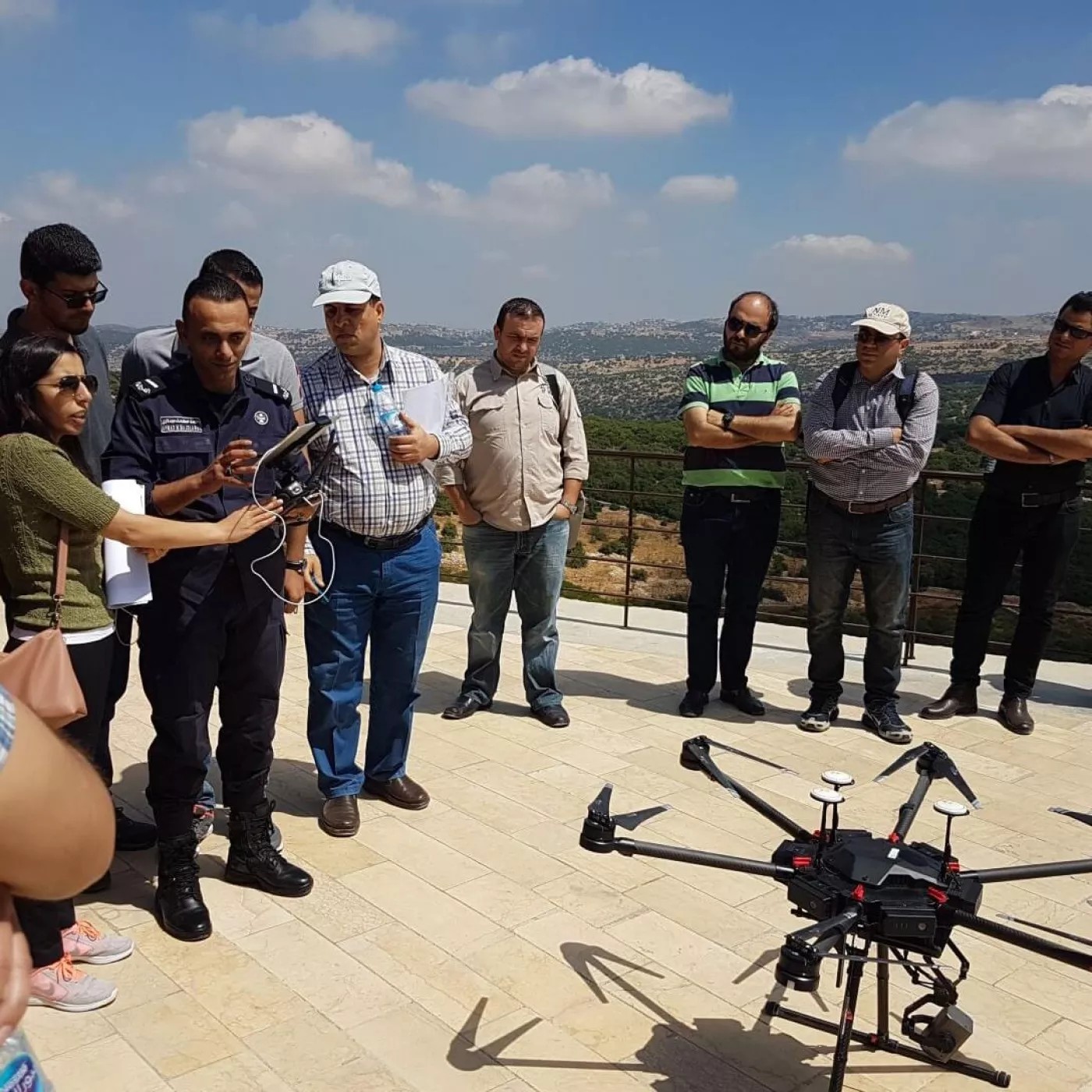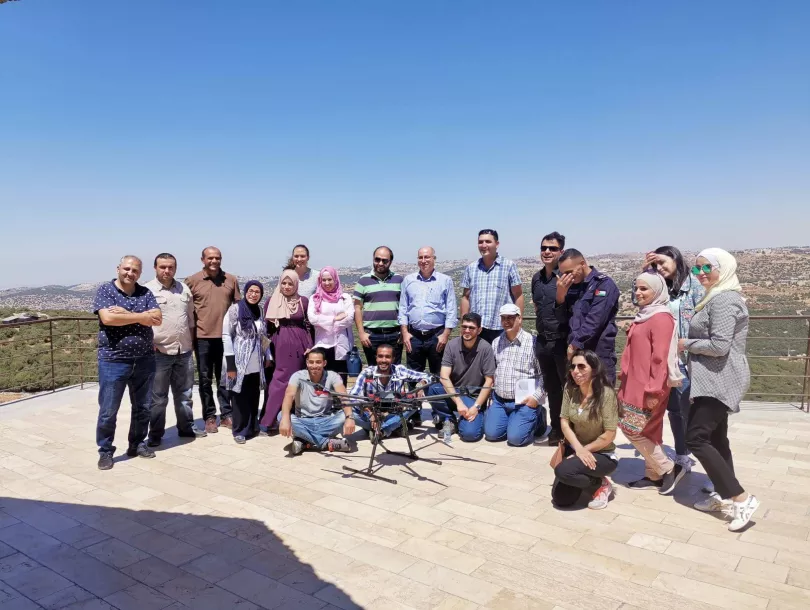When the sky is the limit: Aerial research in Jordanian water and agriculture

The country of Jordan is prioritising the protection, production, and sustainable management of forest and agricultural areas. Unmanned aerial vehicles (UAVs) and satellite imagery can play an important role in improving the data collection, monitoring and evaluation of these areas.
Remote sensing applications are already in use by the Jordanian military for security measures, but they have not yet been put to use in other sectors, like agriculture and water. The University of Jordan, School of Agriculture, and Twente University, ITC Faculty are looking to change that. Funding was secured through a Tailor-Made Training (TMT), part of Nuffic’s Orange Knowledge Programme.
More data
“Jordan has been using remote sensing applications in certain sectors, but we believe it can be applied more broadly and in more innovative ways”, says Yolla Al Asmar, lecturer at University of Twente, who co-wrote the joint proposal for the TMT with Caroline Gevaert and Marian Belgiu from the same department, and who is of Jordanian descent herself. “In particular, when it comes to forestry and agriculture in Jordan, satellites and UAVs can be used to gather more data more frequently.”
This data – for example, about crop growth or forest fires – can be analysed and processed with the aim of producing or managing areas in a more sustainable way.
“The agricultural sector is a major consumer of water and accounts for 52 percent of the annual water budget”, explains Amani Assaf from the University of Jordan, School of Agriculture. “Therefore, different measures are being taken to reduce water supplies for agriculture and enhancing water use efficiency.”
Fill the gap
“The emergence of new technologies, such as UAV, can fill the gap between ground-based measurements and Satellite Remote Sensing, and provide more efficient data collection and assessment methods. Incorporating these technologies will support sustainability, innovative research, and provide future business opportunities to our students.”

For two weeks, attendees participated in lectures, discussions and practical sessions, in which they learned how to operate UAVs in real-life situations in Jordan.
The TMT is divided into three phases. The first phase consisted of a two-week training in August 2019. This training was attended by 23 participants from 7 institutions: the School of Agriculture (University of Jordan), the National Agricultural Research Centre (NARC), the Ministry of Agriculture, the Ministry of Water and Irrigation, Royal Botanical Gardens, the Royal Society for the Conservation of Nature, and the Exporters and Producers Association for Fruit and Vegetables.
For two weeks, attendees participated in lectures, discussions, and practical sessions, in which they learned topics related to remote sensing innovations in the field of agriculture and forestry. The participants learned how to process and analyse satellite and UAVs images using advanced methods and use the results in real-life situations in Jordan. “We went to a reserved area to demonstrate data acquisition using the drone,” Al Asmar says. “Also, we analysed satellite images from a recent forest fire in Jordan to asses burn severity. The actual damage turned out to be a lot more severe than the participants initially estimated. That’s when you truly experience the added value of remote sensing applications.”
Case studies
Not only were the participants excited and dedicated, they also established ongoing case studies, in which they will apply the skills and knowledge gained from the first part of the training. In the meantime, they are receiving ongoing support from Twente University. The third and final phase of the TMT will be presenting the findings at a public symposium in Jordan, Spring 2020. The TMT organisers plans on inviting scores of decision makers in order to increase awareness.
Already during the training, several opportunities for future research were discussed with Twenty University, Assaf says. “This collaboration helped our university and other institutions to gain knowledge and experience in this technology. It would be great if our students could follow Msc-programs at Twente’s ITC faculty in the future. More importantly, we hope this TMT helps establish renewable food production systems and enhances sustainable water management in Jordan.”